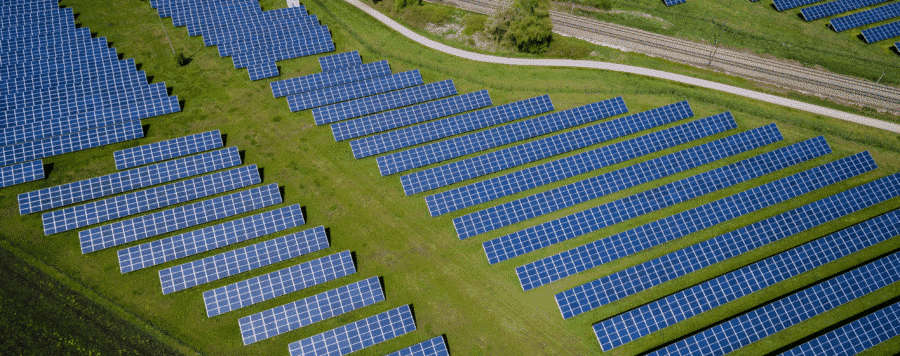
On July 9th, New Jersey Governor Phil Murphy signed two important bills in favor of solar development in the state into law. Bill S2605, which includes a few programs for residential/community solar as well as tons of utility-scale solar benefits, and Bill S3484 which authorizes the use of unpreserved farmland for solar projects, allowing for agricultural activities to occur under and around solar installations.
Here is a breakdown of each bill, what to expect, and how to take advantage of them as soon as it’s possible to do so.
New Jersey Solar Bill Breakdown
The first New Jersey solar Bill S2605 will greatly benefit utility-scale solar installers with “incentives for at least 1,500 megawatts (MW) of behind-the-meter solar facilities” while community/residential installers gain solar incentives for 750 MW of community solar by 2026. The SREC-II program created by the bill will help to maintain the state’s solar industry with “non-discriminatory net-metering rates” to both large and small residential-scale solar customers ensuring that solar continues to be a great investment for all solar system owners.
According to the bill, all of the above will come into effect no later than a year from now and:
- Provide enhanced electricity reliability
- Contribute to reducing seasonal electricity price spikes
- Be cost-effective to ratepayers over the term of the contract, taking into consideration potential economic and environmental benefits to the ratepayers
- Be paired with energy storage systems
- Mitigate any environmental impacts associated with the construction of the facility
- Create and foster employment and economic development in the State.
Bill S3484, on the other hand, “Increases [the] amount of solar energy generation on lands eligible for farmland assessment under certain conditions; revises law concerning solar energy generation on preserved farmland, [and] directs BPU to provide certain incentives to “dual-use” solar projects on unpreserved farmland.”.
Owners of unpreserved farmland may now apply their property to be considered dual-use land where they can both farm and generate solar energy in the same area, as long as the solar panel system has a capacity of generating less than 10 megawatts of power. This means that they can essentially use the land underneath the solar panel installation for farm activities like creating shade for crops that require it to grow properly, or allowing livestock to graze around and below the panels.
How Solar Companies Benefit from these Solar Energy Bills
While residential solar installers will benefit from the community solar initiatives included in Bill S2605, the biggest winners are companies who install utility-scale solar projects. This, however, doesn’t mean that residential solar installers are losing here. With all the interest generated from this new bill, more and more people are becoming aware of the benefits of solar panel installations of any size. A city dependant on solar power for its grid infrastructure will, in turn, encourage others to consider solar power for their homes and construction projects leading to a greener state where everyone is benefitting from the sun in a new and better way.
As for the benefits gained by solar installers through Bill S3484, farmers and landowners who were originally unable to use their land for anything but agriculture and horticulture can now go ahead and begin to save money through the generation of their own power with a solar energy system, as long as they follow the guidelines outlined in the bill and have the permits to do so. Solar installers are essentially left with a brand new market to tap into and compete for, which is both great for the economy, environment, and their solar businesses.
How to Take Advantage of These New Bills
If you sell or install solar in New Jersey, it’s time to start prepping your business to scoop up the sales that will come through as a result of these solar energy bills.
With the inclusion of community solar projects in Bill S2605, now is the time for you to register your solar company as a Community Subscriber Organization with the New Jersey Board of Public Utilities so that you can hit the ground running and take advantage of a new pool of potential solar projects available to you.
If your solar company installs ground-mounted solar systems, begin to reach out and inform local farmers and owners of large properties about the new benefits available to them and how you and your business can help.
With the adoption of solar in New Jersey set to increase over the next few years, it’s important for solar installers to make sure they have the right tools to work quickly and efficiently. Using Solargraf’s solar proposal software will help you manage an influx of new projects with ease with its project management tools, quick and easy solar design system with AutoPitch capabilities, beautiful proposals with Good, Better, Best options and e-signature capabilities, permit & stamp orders, financing, virtual site assessments and more.
Book your demo today to see it in action so you can be ready for what’s coming once the solar industry in New Jersey picks up speed over the next year and beyond.



 United States
United States Germany/Austria
Germany/Austria Brazil
Brazil Netherlands
Netherlands